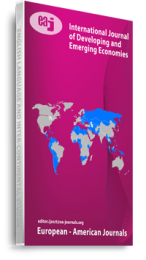The purpose of this study was to investigate the relationship between natural resources by source, institutional quality by source, and economic growth in Africa using multiple co-integration analysis, the ARDL technique, and VECM granger causality. The findings show that various resources contribute to economic growth in different ways. Mineral rents (MR) have a negative impact on growth, while forest rents (FR) have a beneficial impact. The findings also show that forest rents contribute more to growth in the rule-of-law (ROL) model than in the market openness (MO) model. Among the institutional quality (IQ) variables, the rule of law has the most significant impact on the continent’s economic growth. Furthermore, when IQ was added as an interaction variable in the models, both resources (MR and FR) ended up contributing favourably to development. The study recommends that resource-rich countries must specifically concentrate on improving the rule of law since robust outcomes are generated when interacted with natural resources.
Citation: Chernor Momodu Bah and Unisa Dumbuya (2022) Economic Growth Effects of the Interaction of Natural Resources and Institutional Quality by Source: Empirical Evidence from Africa, International Journal of Developing and Emerging Economies, Vol.10, No.2, pp.1-33
Keywords: Rule Of Law, economic growth, forest rents, interaction, market openness, mineral rents

